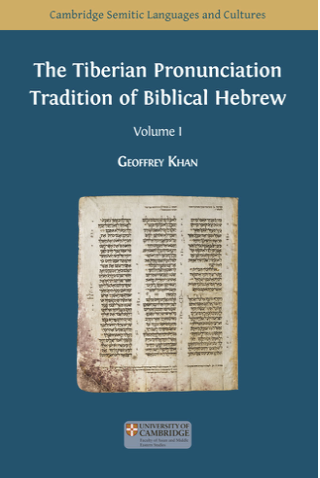The form of Biblical Hebrew that is presented in printed editions, with vocalization and accent signs, has its origin in medieval manuscripts of the Bible. The vocalization and accent signs are notation systems that were created in Tiberias in the early Islamic period by scholars known as the Tiberian Masoretes, but the oral tradition they represent has roots in antiquity. The grammatical textbooks and reference grammars of Biblical Hebrew in use today are heirs to centuries of tradition of grammatical works on Biblical Hebrew in Europe.
News
24 April 2024
Elizabeth Monier was interviewed by BBC News Brazil for a report on alliances and rivalries and in the Middle East, published 20 April.
24 April 2024
Elizabeth Monier was panel chair and discussant for a session in the "Erasures in Iraq" workshop hosted by the Centre for Minorities Research at St Andrews University on 15th April. This was a one-day event that brought together scholars and practitioners to discuss and raise awareness on erasures. The focus was specifically on Iraqi/Kurdish social groups and themes that deserve attention but remain neglected.
23 April 2024
We are extremely proud of our alumna Tessa Rizzoli. Tessa, who graduated in 2020 from Japanese Studies at AMES, has recently published in Japanese a very interesting book on the Japanese language:『イタリア女子が沼ったジワる日本語』(亜紀書房、2024)
22 April 2024
James Montgomery joins New Lines Culture Editor Lydia Wilson on The Lede podcast to discuss his latest book, “In Deadly Embrace: Arabic Hunting Poems,” which offers a new translation of hunting poetry by Ibn al-Motaz, a poet writing in the ninth century, after the establishment of the Islamic caliphate.
19 April 2024
Wiktor Gębski one of the post docs from our Faculty has had a book published this week called A Grammar of the Jewish Arabic Dialect of Gabes.
- 1 of 14
Coronavirus: latest information and updates
Brexit: latest information and updates






